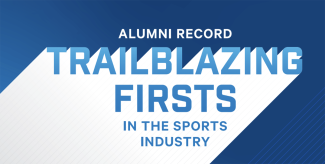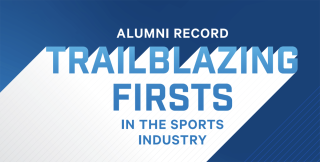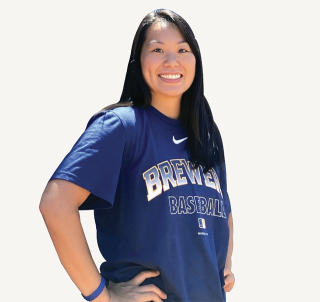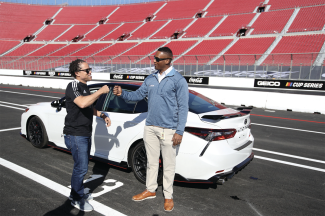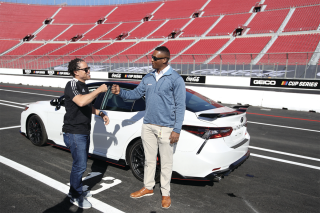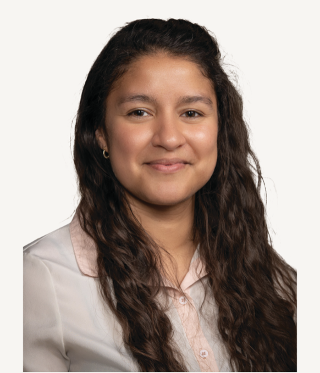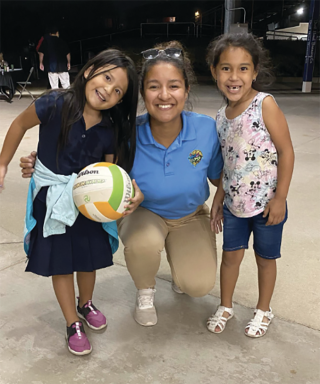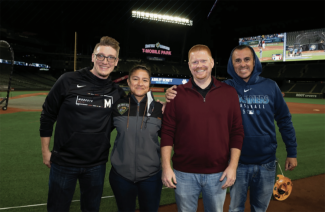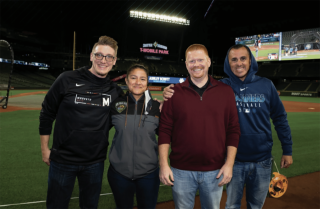Theresa Lau ’14, DPT ’16, broke the glass ceiling when Major LeagueBaseball’s Milwaukee Brewers recruited her—two years after she had received her doctorate in IC’s physical therapy program. An assistant athletic trainer and physical therapist for the Brewers, Lau is the firstAsian American woman to work on a medical team in MLB history. “That’s something I don’t really think about every day,” Lau said. “I’m really fortunate to be in the position, and I know that a lot of females and a lot of other Asian Americans who want to try to get into the sports industry can realize that it’s possible.”
Shortly after earning her doctorate, Lau landed a prominent role with the Boston Red Sox in 2017 before moving to the Brewers minor league system in 2018. Since being called up to the majors, Lau splits her time between her home in Arizona and the Brewers’ home base in Wisconsin. She travels with the team during their season, treating soft tissue injuries and any other injuries that happen on the field. She collaborates with two other athletic trainers in the training room and in the dugout during games, and together the three are responsible for treating the 26 players on the Brewers’ roster.
“The fact that we get to help these guys perform at their best and knowing that I have an impact on them is rewarding,” Lau said. “You can’t really beat that feeling when you’re out there competing with another team and a lot of exciting things are happening. The team just meshes together, and really cool stuff happens right in front of you.”
On a typical day, Lau works with players on treatments for several hours until the start of a game. Once a game starts, she is in the dugout covering the field for injuries. Her treatments focus on manual techniques, such as massages and corrective and activation exercises. “I get them ready for the game, making sure they are ready to go and they can play at their best that day,” she said.
Lau says her interest in athletic training began before college. She played softball and soccer in high school, so when it came to choosing a profession, she knew she wanted to be near the field and a competitive environment. “I wanted to go into the health field because I like helping and supporting people and helping them reach their goals,” she said. “I found physical therapy and athletic training to be a perfect fit for me—that I get to be around athletics still but also help people push them-selves to reach their own goals.”
At IC, she was a board member and president of the Ithaca AthleticTraining Students Association, where she worked on building relationships between the older and newer students. “The biggest push for us was to help the younger students—the first-year students and sophomores—get their feet wet because being a new student in an athletic environment can be very intimidating,” Lau said. “So when I was a senior, I felt like we needed to bridge that gap.”
Courtney Gray, a clinical professor and athletic trainer at Ithaca College, taught Lau and supervised her in the clinic and with athletic teams. “Watching the trajectory of Theresa’s career and all she has achieved has made me so proud,” Gray said. “She always stood out in the classroom as a bright student with a high level of commitment, and during her clinical experiences she was professional, inquisitive, and showed exceptional clinical decision making. It’s no surprise she is where she is today with the Brewers.”
Lau received hands-on experience in athletic training and physical therapy through clinical rotations aspart of her degree program. Exercise science and athletic training professor Patrick McKeon, who also taught Lau, says she was an exceptional student. “I really loved working with her in the classroom and watching her develop as a professional,” McKeon said. “She continues to inspire athletic training students to passionately follow their own goals and aspirations.”
During her junior year, Lau spent a full season with the Ithaca women’s softball team, and in her senior year, she worked with the Cornell women’s hockey team. “I’m really proud to be an Ithaca alumna,” she said. “I always attribute a lot of my success to Ithaca. Looking back, it really was a family, and professors wanted their students to grow and be successful.”

